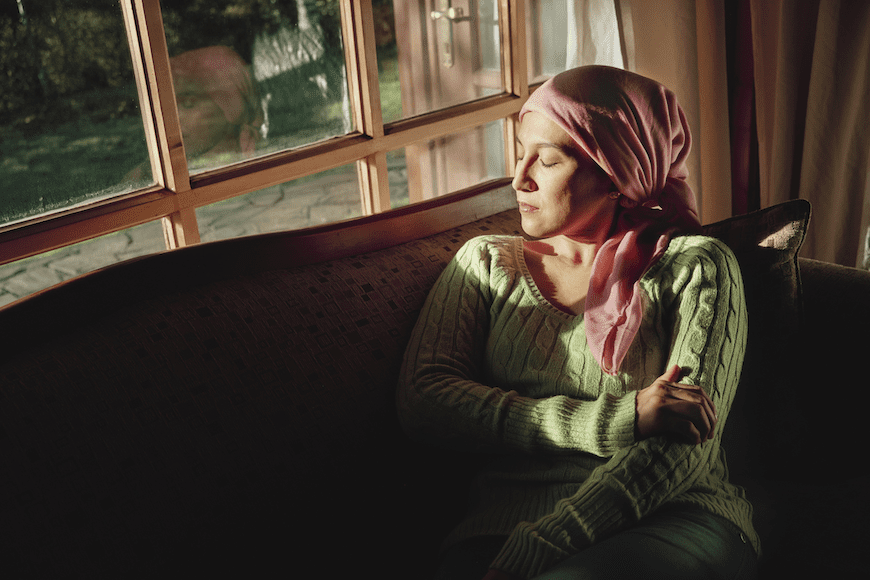Oncology
Cancer, a complex group of diseases characterized by uncontrolled cell growth, can profoundly impact mental health. Patients diagnosed with cancer often grapple with anxiety, depression, and fear. The Journal of Clinical Psychiatry provides in-depth insights into the psychological ramifications of cancer diagnoses, treatments, and survivorship. Our content, curated by a dedicated team of editors, delves into the emotional challenges faced by patients, the role of psycho-oncology, and strategies for psychiatrists to support cancer patients and their families. Understanding this intersection is crucial for holistic patient care.
Aerobic Exercise Might Help ‘Chemo Brain’ Symptoms
Aerobic exercise might not improve objective cognitive function but enhances self-reported cognitive ability in patients with chemo brain.

Breast Cancer and Depression: A Scoping Review of Indian Literature
This scoping review explores depression prevalence, correlates, impact, and interventions in breast cancer patients, with a focus on the Indian context.
Prim Care Companion CNS Disord 2024;26(5):24r03721

Weekly Mind Reader: When is Vomiting Not a Gut Problem?
This week features a report on chronic vomiting, a review of the economic impact of cognitive impairment, and how apps can advance care.

Therapeutic Effects, Side Effects, and Adverse Effects of Neuropsychiatric Drugs in the Context of Treating Cancer-Related Anorexia With Olanzapine and Mirtazapine
Dr Andrade discusses two RCTs that investigated the utility of olanzapine and mirtazapine in addressing appetite loss in cancer patients.
J Clin Psychiatry 2024;85(3):24f15532

Mental Health Concerns Grow As Cancer Rates Climb
Rising cancer rates highlight the severe psychological impact of diagnosis and the urgent need for improved mental health care.

Association Between Clozapine Exposure and Risk of Hematologic Malignancies in Veterans With Schizophrenia
Clozapine exposure of at least 5 years was associated with hematologic malignancy, and the increased risk was dose-dependent.
J Clin Psychiatry. 2024;85(2):23m15149

Psychotropic Medication Prescriptions for Home-Based Palliative Care Oncology Patients
In palliative home care, psychotropic medications are frequently prescribed by palliative doctors primarily for symptom management, with limited psychiatric consultations and challenges in accessing psychological evaluations.
Prim Care Companion CNS Disord 2024;26(2):23m03668
When Depression Hides a Brain Tumor: A Case of Glioblastoma
A 69-year-old woman with a history of depression presents with recent onset of cognitive symptoms and impairment in daily activities coupled with persistent atypical psychiatric symptoms and a poor response to treatment. Could she have a brain tumor?
Prim Care Companion CNS Disord 2019;21(6):19l02455
Two For the Road
What would you do if you were diagnosed with cancer? Would you fight and attack it like an enemy? Or would you treat it as a part of yourself that needs to heal? Here, Dr Scott recommends the latter. She explains why waging war against cancer is like fighting a losing battle and, instead, suggests acceptance and starting the journey to return your body to a precancerous state.
Prim Care Companion CNS Disord 2016;18(2):doi:10.4088/PCC.16f01948
A Case of Glioblastoma Masquerading as an Affective Disorder
Article AbstractBecause this piece does not have an abstract, we have provided for your benefit the first 3 sentences of the full text.
To the Editor: Brain tumors can produce psychiatric symptoms, particularly if malignant and fast growing. Among gliomas, growth rate seems to be particularly relevant for the occurrence of mental disturbance, with symptoms in up to 80% of glioblastomas and only 25%-35% of lower-grade astrocytomas. We report a case of glioblastoma multiforme, a very fast-growing brain tumor, initially presenting as acute mania.
Because this piece does not have an abstract, we have provided for your benefit the first 3 sentences of the full text.
To the Editor: Brain tumors can produce psychiatric symptoms, particularly if malignant and fast growing. Among gliomas, growth rate seems to be particularly relevant for the occurrence of mental disturbance, with symptoms in up to 80% of glioblastomas and only 25%-35% of lower-grade astrocytomas. We report a case of glioblastoma multiforme, a very fast-growing brain tumor, initially presenting as acute mania.
 MY ACCOUNT
MY ACCOUNT

